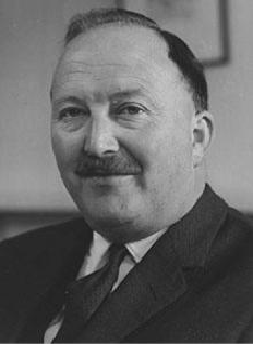
Edward Lee Thorndike was an American psychologist who spent nearly his entire career at Teachers College, Columbia University. His work on comparative psychology and the learning process led to his "theory of connectionism" and helped lay the scientific foundation for educational psychology. He also worked on solving industrial problems, such as employee exams and testing.
Benjamin Samuel Bloom was an American educational psychologist who made contributions to the classification of educational objectives and to the theory of mastery learning. He is particularly noted for leading educational psychologists to develop the comprehensive system of describing and assessing educational outcomes in the mid-1950s. He has influenced the practices and philosophies of educators around the world from the latter part of the twentieth century.
School psychology is a field that applies principles from educational psychology, developmental psychology, clinical psychology, community psychology, and behavior analysis to meet the learning and behavioral health needs of children and adolescents. It is an area of applied psychology practiced by a school psychologist. They often collaborate with educators, families, school leaders, community members, and other professionals to create safe and supportive school environments.
Arnold Lucius Gesell was an American psychologist, pediatrician and professor at Yale University known for his research and contributions to the fields of child hygiene and child development.

The Elementary Education Act 1870, commonly known as Forster's Education Act, set the framework for schooling of all children between the ages of 5 and 12 in England and Wales. It established local education authorities with defined powers, authorized public money to improve existing schools, and tried to frame conditions attached to this aid so as to earn the goodwill of managers. It has long been seen as a milestone in educational development, but recent commentators have stressed that it brought neither free nor compulsory education, and its importance has thus tended to be diminished rather than increased.

An educational psychologist is a psychologist whose differentiating functions may include diagnostic and psycho-educational assessment, psychological counseling in educational communities, community-type psycho-educational intervention, and mediation, coordination, and referral to other professionals, at all levels of the educational system. Many countries use this term to signify those who provide services to students, their teachers, and families, while other countries use this term to signify academic expertise in teaching Educational Psychology.
Haim G. Ginott was a school teacher, a child psychologist and psychotherapist and a parent educator. He pioneered techniques for conversing with children that are still taught today. His book, Between Parent and Child, stayed on the best seller list for over a year and is still popular today. This book sets out to give "specific advice derived from basic communication principles that will guide parents in living with children in mutual respect and dignity."

Kingstanding is an area in north Birmingham, England. It gives its name to a ward in the Erdington council constituency. Kingstanding ward includes the areas; Perry Common, Witton Lakes. The other part of Kingstanding falls under the Oscott ward.

The Centre for International Education and Research (CIER) evolved in the 1950s, at the University of Birmingham UK, in the context of the involvement of British academics in the new international educational role of the United Nations.
Special educational needs (SEN), also known as special educational needs and disabilities (SEND) in the United Kingdom refers to the education of children who require different education provision to the mainstream system.

Ferenc Mérei was a Hungarian psychologist and educator.
W. Bryan Dockrell (1929–2010) was a Scottish education researcher, with degrees from the University of Manchester, Trinity College Dublin, Edinburgh University and the University of Chicago. He made an important contribution to the development of British Educational Research particularly through his time as Director of the Scottish Council for Research in Education (SCRE) from 1971 to 1986. Prior to his time at SCRE Bryan worked in England, Canada and the USA
Michele Irmiter Elliott OBE is an author, psychologist, teacher and the founder and director of child protection charity Kidscape. She has chaired World Health Organization and Home Office working groups and is a Winston Churchill fellow.
Nicholas Hobbs was an American psychologist and a past president of the American Psychological Association (APA).

Keith James Topping is a researcher in education. He designs intervention programs for teachers, parents and others to help children, then researches whether and how they work.
Klaus Wedell CBE was a British educational psychologist and innovator of national and international importance in educational psychology and in special educational needs (SEN), with respect to theoretical and conceptual developments, professional practice and policy.
Waveney Bushell is a Guyanese-born teacher, activist and "arguably the first Black educational psychologist in the UK". She is most notable for her role in exposing racism and inequality in the British educational system.
Rita Ruth Jordan is an academic and researcher in the field of autism. She worked with children with special educational needs and started training programmes for their parents before moving into academia.

Vera Southgate was a British educationalist who dedicated herself to improving how children were taught to read English from the late 1950s to the mid-1980s, a period when many different methods were practised, including the initial teaching alphabet, phonics, and whole language.

John Downing (1922–1987) was a British educational psychologist who started his career as a teacher then worked as an academic from 1960 until his death in 1987. He published over 300 academic papers in his 27-year academic career, specialising in both how children read and how they learn to read. His three main fields of study were the initial teaching alphabet, the psychology of reading and the comparison of reading methods across different languages and cultures. His principle works in each of these fields were Evaluating the Initial Teaching Alphabet, Reading & Reasoning and Comparative Reading. Fundamentally, Downing was an educational psychologist and his main lifetime achievement was the formulation of the cognitive clarity theory of learning to read.








